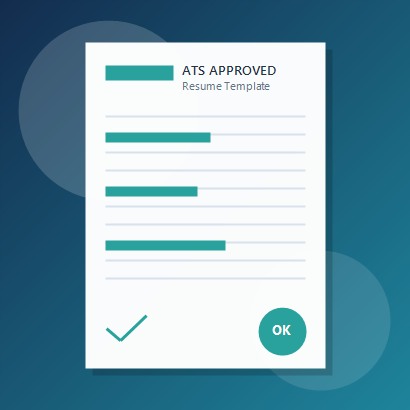Green Careers: Resume Tips for Environmental Jobs
Resume Optimizer Pro Editorial Team
Updated October 6, 2024

As the global focus on environmental sustainability intensifies, green careers are becoming more desirable and lucrative. These roles span across various industries, from renewable energy to sustainable agriculture and conservation. For job seekers looking to enter or advance in this vital sector, having a resume that effectively highlights relevant skills, experiences, and commitments to environmental causes is crucial. This guide provides targeted advice for crafting a resume that stands out in the green job market.
Understanding the Green Job Market
The green job market is diverse and requires a specific set of skills and experiences that can vary widely from one position to another. Whether you are applying to work in a non-profit environmental advocacy, corporate sustainability, or hands-on conservation project, it is essential to understand the expectations and requirements typical of green careers.
Industry Requirements
Jobs in the environmental sector often require not only relevant educational backgrounds in fields such as environmental science, biology, or engineering but also specific skills like GIS proficiency, experience with sustainability audits, or expertise in environmental law and policy. Familiarity with industry standards, certifications, and legislation can also be crucial, depending on the job.
Passion and Commitment
Employers in the green sector frequently look for candidates who demonstrate a genuine passion for environmental advocacy. Including volunteer experiences, participation in environmental clubs, or membership in sustainability organizations on your resume can significantly enhance your appeal to potential employers by showcasing your commitment to environmental issues.
Tailoring Your Resume for Environmental Jobs
Crafting a resume for a green career requires careful consideration of how your skills and experiences align with the environmentally conscious mission of potential employers. Tailoring your resume to highlight these aspects is essential.
Highlight Relevant Experience
When detailing your professional history, emphasize roles and projects that had an environmental component. For instance, if you worked in project management, describe projects that involved environmental sustainability. Use metrics to quantify your impact, such as reductions in waste production, improvements in energy efficiency, or increases in recycling rates.
Focus on Transferable Skills
Many skills valuable in green careers, such as project management, data analysis, and community outreach, are also common in other fields. Highlight how these skills can transfer to an environmental job. For example, experience in data analysis could be applicable in roles that require monitoring and reporting on pollution levels or energy usage.

Key Sections to Include on an Environmental Resume
To make your resume resonate with green employers, certain sections can particularly showcase your suitability for a career in this field.
Education and Certifications
Include any degrees in environmental science, policy, engineering, or related fields. Also, list relevant certifications such as LEED accreditation, Certified Energy Manager (CEM), or other recognized industry qualifications that demonstrate your specialized knowledge and skills in areas critical to green employers.
Projects and Publications
If you have been involved in research, presentations, or publications relevant to environmental topics, include a section detailing these contributions. This not only highlights your expertise but also your active engagement with the environmental community.
Using Keywords Effectively
Like many sectors, green jobs often require passing through an Applicant Tracking System (ATS) before reaching a human recruiter. Utilizing the right keywords is crucial to ensure your resume doesn’t get overlooked.
Research Industry-Specific Keywords
Review job listings that interest you and note commonly used terms and phrases, especially those related to required skills, certifications, and technological proficiencies. Incorporating these keywords naturally throughout your resume will help optimize it for ATS scans and demonstrate your familiarity with the field.
Sustainable Practices and Technologies
Mention any experience with sustainable practices or technologies specific to your field. For example, knowledge of solar energy systems, environmental impact assessments, or sustainable supply chain management can be highly relevant and should be clearly highlighted in your resume.
Conclusion
Creating a compelling resume for a green career requires a strategic approach that combines a professional presentation with a clear demonstration of your commitment to sustainability and environmental protection. By tailoring your resume to emphasize both your technical qualifications and your passion for the environment, you can significantly increase your chances of landing a job in this rewarding field. At Resume Optimizer Pro, we provide the tools necessary to craft such specialized resumes. Leveraging our AI-driven platform, we help you identify and integrate the skills and keywords essential for the green jobs you aspire to. This enables our clients to produce professional resumes that not only meet the specific demands of environmental employers but do so efficiently and cost-effectively, enhancing your job search in the green sector.


